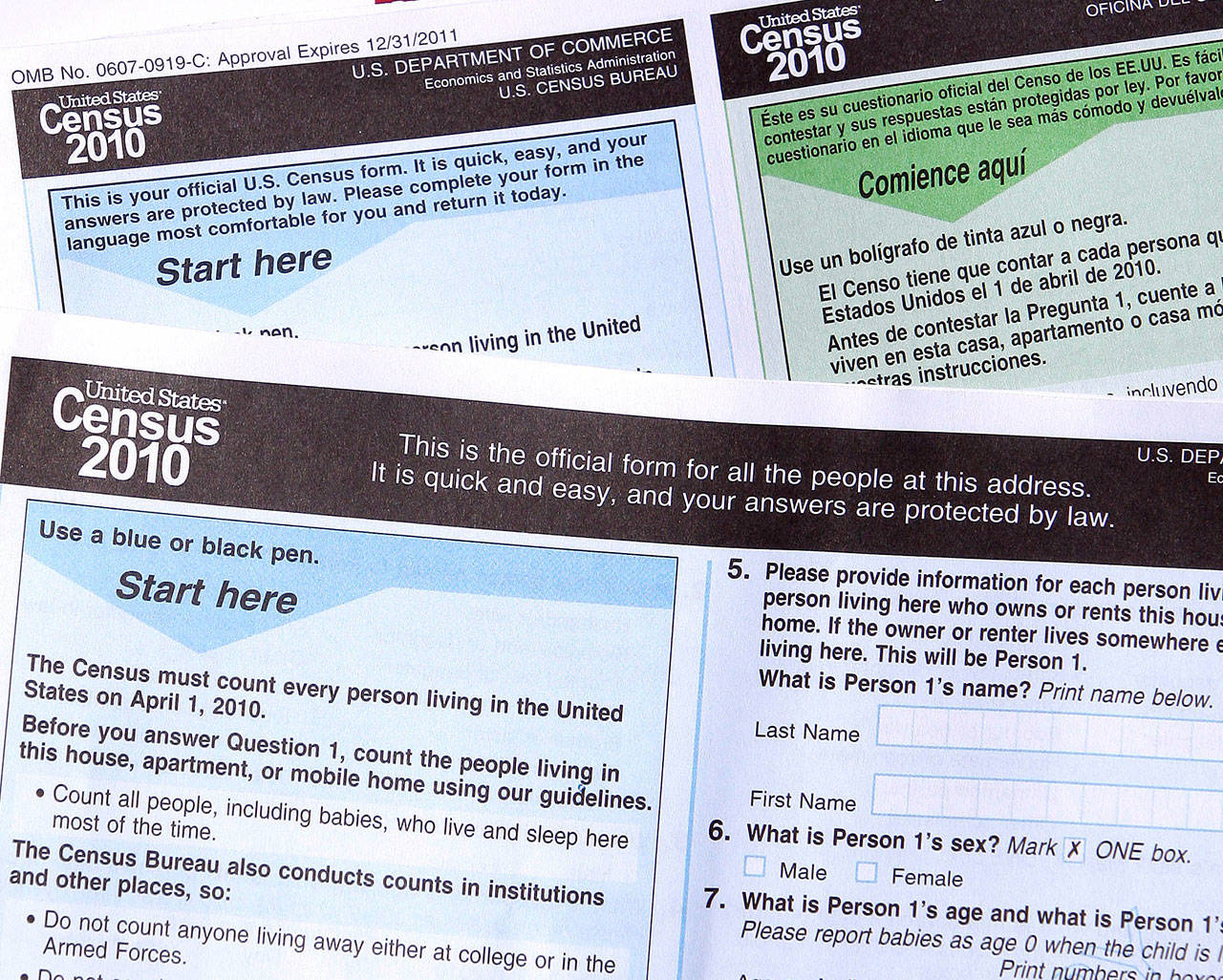By The Herald Editorial Board
A proposal to slip a question into the 2020 census asking about U.S. citizenship might seem harmless at first glance — even potential useful — but it comes too late in the planning for the enumeration, required every 10 years by the Constitution, and threatens to discourage participation that would have impacts on fair representation in Congress and in distribution of federal funding.
And there’s no need to include it.
At the suggestion of the Trump administration’s Department of Justice, Commerce Secretary Wilbur Ross, whose Commerce Department oversees the Census Bureau, announced his decision to reinstate a question regarding citizenship in the 2020 census that hasn’t been included in the questionnaire in decades. The Justice Department holds that the information is necessary for enforcement of the Voting Rights Act, first passed in 1965.
The announcement was quickly met with widespread criticism, including from past Census Bureau directors from Republican and Democratic administrations, and the threat of lawsuits from at least 12 states, including Washington state Attorney General Bob Ferguson.
Ferguson and the attorneys general of nine states announced their intentions to join New York’s attorney general in filing suit, while California has filed its own suit against the proposal to amend the census questionnaire.
Mandated by the Constitution, the census is required to count every resident — regardless of citizenship status — in order to determine the number of Congressional representatives for each state, each state’s allocation in the Electoral College, as well as guide the drawing of boundaries for congressional, legislative and local government districts. The information is also used to fairly allocate hundreds of billions of dollars each year in federal grants provided to states for health care insurance, K-12 and college education and food, housing and energy assistance.
The first problem with slipping the citizenship question into the census survey? The question could discourage participation in the census, thus resulting in an inaccurate count that could have far-reaching consequences for the make-up of Congress and the allocation of federal funds.
Miscount certain communities, and states with larger immigrant populations are at risk for under-representation and loss of federal funding they are entitled to, based on their real population.
During a time of heightened concerns over privacy and a crackdown on illegal immigration — including moves to deport those who don’t come close to rising to President Trump’s definition of “bad hombres” — asking about citizenship in the census is likely to discourage the participation of noncitizens and even legal immigrants, particularly those with family members who are not here legally. One obvious example of those who might not be counted because of those fears: children, born in America, to parents who entered the country illegally.
While the information gathered by census workers is kept private, the bureau has long had to work to encourage participation among some immigrant communities, particularly Latino families, using outreach and education efforts. Including the citizenship question will only raise doubts about assurances that the information won’t be used to seek the deportation of those here illegally.
The second problem? It’s too late to include such a question.
The Census Bureau has a statutory deadline of March 31 — this Saturday — to present its final questionnaire to Congress.
While the census is still more than a year away, in order to finalize the questionnaire to be used in 2020, the bureau has had to test the survey to determine its accuracy, work that is nearly complete.
Secretary Ross, in defending his decision to include the citizenship question, said the opponents can offer no proof that the question would depress turnout.
But there’s no data on the question’s potential effect on turnout because it hasn’t been tested. And to turn the point around, Ross — and the Justice Department — have no data to document that it won’t.
The Census Bureau hasn’t included a citizenship question since 1950, dropping it, according to the New York Times, from the 1960 enumeration. In 1970 the question was included in a longer version of the questionnaire asked of a smaller portion of the population, but was abandoned altogether from the questionnaires in 2000.
That doesn’t mean the citizenship question isn’t asked. Citizenship information is requested in the annual American Community Survey, a voluntary poll that uses responses from a representative sample of the population.
If it’s data on citizenship that the Justice Department needs, it makes more sense to obtain those numbers from the community survey, which can provide more timely numbers than a census that is taken once every 10 years.
And that’s the final reason not to mess with the decennial census: If the Trump administration mucks it up this time, we won’t have another opportunity to correct it until 2030.
Talk to us
> Give us your news tips.
> Send us a letter to the editor.
> More Herald contact information.

























